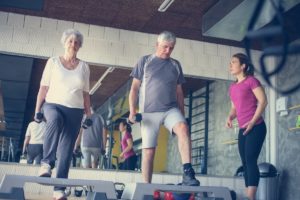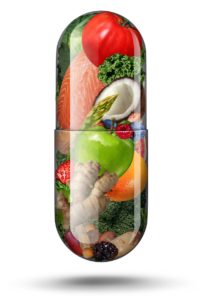Consumer EducationShare With Clients
Sitting Is Not the New Smoking
The evidence is definitive. Risks of smoking far outweigh the health dangers of a sedentary lifestyle. It’s important to raise awareness of the hazards of inactivity, but distorted information about risks of behavioral choices can confuse the public. “The simple fact is, smoking is one of the greatest public health disasters of the past century. Sitting is not, and you can’t really compare the two,” said study author Terry Boyle, PhD, an epidemiologist at the University of South Australia, Adelaide.
New Physical Activity Guidelines for Americans
Any amount of physical activity—anytime, anywhere and by any means—is good activity, according to Brett P. Giroir, MD, assistant secretary of health for the U.S. Department of Health and Human Services. “As opposed to everything being harder and harder, it is actually easier to achieve the recommendations in the [new] physical activity guidelines,” Giroir said during a press conference.
Starting a Home Yoga Practice
Do you love taking yoga classes? Learning from a skilled teacher is essential for any yoga student, but classes can be full and are sometimes fast-paced. A self-initiated, self-led home practice is an opportunity to enhance your body awareness and sensitivity, shedding light on misalignments or tight areas that might go unnoticed in the studio. Moments of awareness are important because they inform future yoga practice and enhance your knowledge of your body and yourself.
The Value of Plain Language
Many web articles and other written resources promoting physical activity are too difficult for the average U.S. adult to understand, per findings by Oregon State University researchers in Corvallis, Oregon.
A New Approach to Food Labeling
Maybe graphic health messages on food and beverage packaging like those that adorn cigarette boxes could steer people toward better eating habits.
An Australian study published in the journal Appetite asked participants to rate healthy and unhealthy foods and choose which they would like to eat at the end of the experiment. Next they were shown negative and positive health messages: Some were text only; others had pictures. Study participants then had another chance to rate their desire for the foods.
Health News: True or False?
Reviewing health and fitness news on the internet can produce a minefield of misinformation. Anybody can open a social media account, build a polished website with DIY templates, and set up shop as a self-appointed health and fitness expert. And people who do this can lend their work an air of authority by mimicking the design and presentation of authoritative health-news sources.
Obesity Boosts Melanoma Risk
Add this to the list of dangers associated with obesity: New research from Sweden suggests obesity is a risk factor for developing skin cancer, and weight loss—in this case via bariatric surgery—could reduce the risk of malignant melanoma skin cancer, in particular, by 61%.
The study included 2,007 bariatric surgery patients and 2,040 nonsurgery controls whose skin cancer incidence was monitored for 18 years. Aside from the significantly lower risk of developing malignant melanoma, the surgery group saw a 42% reduction in skin cancer risk in general.
Cutting Facebook Lowers Stress Levels
Need to cut some stress out of your life? Researchers from the University of Queensland in Australia say that taking breaks from Facebook can help.
Their study included 138 active Facebook users who were asked to either take a 5-day fast from the social media platform or maintain current usage. Each person self-reported on their well-being and stress levels and underwent salivary cortisol tests before and after the intervention.
Too Little Or Too Much Sleep Poses Health Risks
National University College of Medicine in South Korea warns that sleeping more than 10 hours a night might be worse.
The Optimal Amount of Exercise for Heart Health
Arterial stiffness, which increases with sedentary living, is associated with higher risk of heart disease. It’s well known that exercise can help, but how much—or how little—is enough?
“While near-daily, vigorous lifelong (>25 years) endurance exercise training prevents arterial stiffening with ageing, this rigorous routine of exercise training over a lifetime is impractical for most individuals,” noted the authors of a new study, which aimed to determine the least amount of exercise necessary to reduce arterial stiffness.
Volume Is Key Factor In Building Strength
The secret to increasing strength and muscle mass may have more to do with how much training you do than how often you do it, according to a new report.
Exercise Doesn’t Slow Dementia, Say Researchers
Research has supported exercise as having the potential to keep dementia at bay or at least to impede its progression. A recent study suggests that physical activity may not be as effective at warding off cognitive decline as previously thought.
In this study, published in BMJ (2018; 361, k1675), 329 individuals were assigned to an exercise intervention, while 165 subjects received “usual care.” Average age was 77, and each participant had a clinically confirmed dementia diagnosis.
How Fast You Walk May Affect How Long You Live
Want to outwalk the grim reaper? Pick up the pace, say researchers. A new study from the United Kingdom suggests that quicker walking may add years to your life.
The study’s primary aim was to examine the impact of walking pace and volume on all-cause mortality. To determine this, researchers looked at mortality records for 50,225 individuals from Scotland and England who had self-reported their walking data via interview.
Weight Training’s Surprising Effects on Depression
Could a cure for depression be found in the weight room? Data from a study published in JAMA Psychiatry (2018; 75 [6], 566–76) points to that conclusion. The meta-analysis of 33 clinical trials, featuring 1,877 participants, found a link between resistance training (RET) and a reduction in depressive symptoms.
Question of the Month
It will soon be easier for consumers to make better food and beverage decisions when eating out or on the go. The U.S. Food and Drug Administration (FDA) has moved forward with a food labeling law that requires restaurants, grocery stores and convenience stores with 20 or more locations to post calorie counts for standard menu items. Proponents say calorie disclosures on everything from muffins to lattes to Happy Meals will offer more transparency and will likely encourage diners to downsize their consumption.
Food, Not Pills
Count this as more proof that we shouldn’t rely on pills and powders to make up for dietary shortfalls.
Are Healthy Eaters Wasteful?
Eating a diet based on whole foods deserves a thumbs-up. What’s hard to swallow, however, is that doing so might contribute to the heaps of food wasted in the United States.
Keto—Fat Chance of Performing Better
The ketogenic diet, a fat-forward meal plan that limits followers to about 20 grams of daily carbs, may help some people shed a little weight (in the short term), but it might not be good news for their athletic pursuits.
Plant Foods Are Good for Our Gut Bugs
Our bodies host a huge population of microorganisms, dubbed the human microbiome. In recent years, the makeup of critters in our guts has been linked to a plethora of conditions, including depression, heart disease and obesity. And now bug-friendly scientists at the University of California, San Diego School of Medicine have presented initial findings from the American Gut Project, a crowdsourced initiative that analyzes people’s survey responses and fecal samples to better understand how things like diet, lifestyle and disease affect the human microbiome.
Belly Fat vs. Vitamin D
Here’s another good reason for people to reduce their Buddha-bellies: improving their vitamin D status. According to data presented at the 2018 European Society of Endocrinology’s annual meeting in Barcelona, Spain, researchers from the Netherlands found that more body fat around adults’ waistline is associated with lower vitamin D levels. Beyond raising the risk of weak bones, poor vitamin D status could set the stage for other health issues, including heart disease and compromised immunity.



















